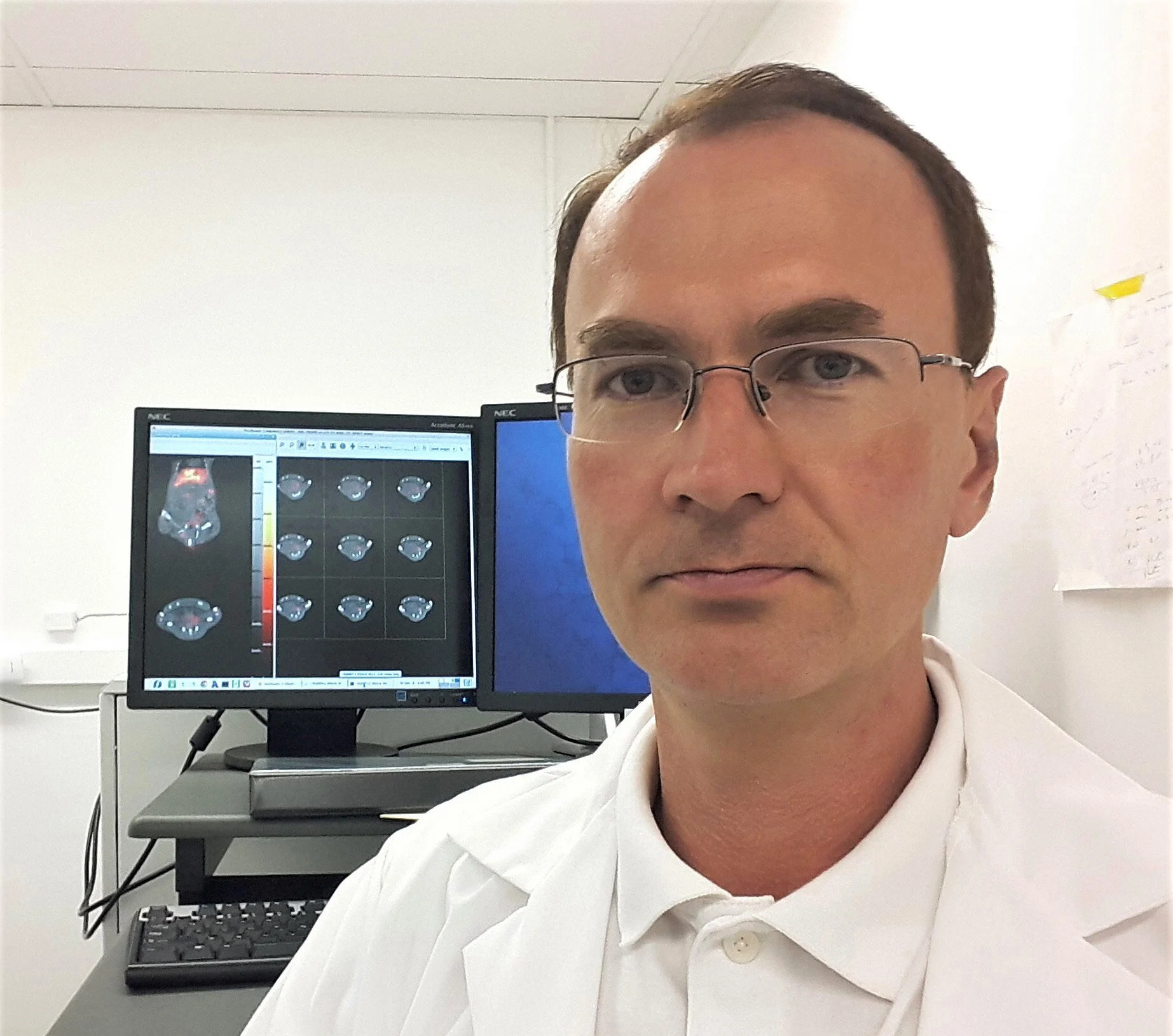Jan E. Schnitzer, M.D.
Dr. Schnitzer has extensive experience in vascular cell biology, imaging, antibody engineering, drug delivery, proteomics and target discovery. His research career has spanned nearly four decades and produced numerous innovative patented advances. His research has focused on characterizing the molecular and functional diversity of the vascular endothelium that lines blood vessels and plays an essential role in vascular permeability and homeostasis.
His lab was first in providing conclusive evidence that caveolae bud from membranes and can actively pump molecules out of the blood into underlying tissue. Characterizing the trafficking functions of this unique transvascular pathway has led to the development of a caveolae-based drug delivery platform currently being developed at PRISM for the targeted delivery of therapeutic agents into diseased tissue and tumors.
Michael Levin, Ph.D.
Dr. Levin's research emphasizes the development of novel technologies for drug delivery to diagnose and treat breast cancer, pulmonary fibrosis and other diseases. Dr. Levin is currently focused on using existing nanoparticles and developing new structures for the encapsulation of small molecule drugs with defined retention and release profiles. His graduate and post-doctoral studies were based on the chemical synthesis of reagents for molecular self-assembly and mechanics. Dr. Levin joined Diversa Inc., in 2000, where he worked on advancement of proprietary platform technologies. In 2005, he joined Solulink Inc., where he developed new approaches to conjugation chemistry and prepared reagents for drug delivery. Between 2006 and 2010, he was part of Biofocus DPI and Nanosyn, to advance their synthetic organic chemistry capabilities, eventually leading operations of the San Diego site of Nanosyn Inc. Dr. Levin joined PRISM in 2010 and currently serves as Director of Nanochemistry.
Bogdan Z. Olenyuk, Ph.D.
Dr. Olenyuk’s current research centers on the elucidation of the mechanisms leading to tumor progression and design of novel anticancer therapeutics. Specifically, his lab investigates four aspects of chemical biology as applied to problems in oncology: 1) hypoxia-inducible factor signaling; 2) development of allosteric modulators of protein-protein interactions for targeting oncogenic signals; 3) design of multifunctional antagonists of cell adhesion receptors and mitochondrial biogenesis pathways in cancer; 4) targeting active transendothelial transport in tumors with metal-antibody conjugates and nanoparticles.
The lab conducts broad, multidisciplinary research that spans cell signaling, transcription, cancer biology, chemistry and pharmacology in order to produce unique, first-in-class, mechanism-based drug candidates. Over the past several years their work has been focused on the identification of novel targets in cancer and validation of the targets in various murine model systems. Following the target identification and validation, the group generates targeting small molecules, antibodies or therapeutic antibody-drug conjugates. Their major effort has been in prostate, breast and pancreatic cancers and is using murine models to test the targets and novel therapies as they move towards the clinic.






